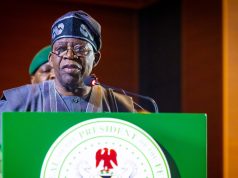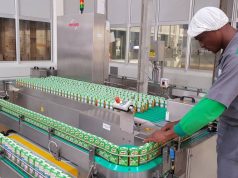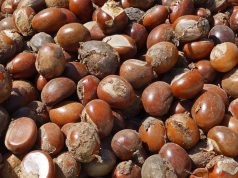President Bola Tinubu has approved a 15 per cent import duty on petrol and diesel, a controversial move the government says is aimed at supporting local refining and boosting energy security, but which critics say could lead to an increase in fuel price.
The president’s approval was contained in a letter with reference no: PRES8197/HAGF/100/71/FIRS/40/88-2/NMDPRA/2, dated 21 October. The letter was addressed to the Attorney General of the Federation and Minister of Justice, Federal Inland Revenue Service (FIRS) and the Nigerian Midstream and Downstream Petroleum Regulatory Authority (NMDPRA).
The tariff allows for a 30-day window and adds to the controversy around petrol import and production in Africa’s largest oil producer.
The letter, titled ‘Re: introduction of a market-responsive import tariff framework on Premium Motor Spirit (PMS) & Diesel,’ was signed by Damilotun Aderemi, the Private Secretary of the President.
According to the letter seen by PREMIUM TIMES, the president’s approval followed a request by FIRS Chairman Zacch Adedeji for the government to apply the tariff to align import costs with domestic realities.
Mr Adedeji said the duty, applied to the Cost, Insurance, and Freight (CIF) value, is expected to increase petrol prices by approximately N99.72 per litre. Despite this, Lagos pump prices are projected to remain around N964.72 per litre ($0.62), which is still lower than in neighbouring countries like Senegal, Côte d’Ivoire, and Ghana, he said.
He added that the tariff is not revenue-driven but corrective, aimed at aligning import costs with domestic realities while preserving affordability, noting that the implementation would commence after a 30-day transition window, allowing importers to adjust cargoes already in transit and ensuring a smooth rollout without market disruption.
“The core objective of this initiative is to operationalise crude transactions in local currency, strengthen local refining capacity, and ensure a stable, affordable supply of petroleum products across Nigeria aligning with Your Excellency’s Renewed Hope Agenda for security and fiscal sustainability,” the FIRS chief wrote to the president.
Mr Adedeji said that the current price difference between locally refined products and import parity pricing has created instability in the market.
“While domestic refining of petrol has begun to increase and diesel sufficiency has been achieved, price instability persists, partly due to the misalignment between local refiners and marketers,” he wrote.
According to him, the government’s responsibility is two-fold: to protect consumers and domestic producers from unfair pricing practices and collusion, while simultaneously ensuring a level playing field that allows domestic refiners to cover costs and attract continued investment.
Critics of the policy, particularly on social media, however, argue that it was put in place to favour the Dangote refinery, owned by Africa’s richest man, Aliko Dangote.
READ ALSO Tinubu commutes Maryam Sanda’s death sentence to 12 years imprisonment
Nigeria currently has no publicly functioning refinery, with the Dangote refinery producing almost all of the West African giant’s locally refined petroleum products.
Although Dangote refinery insists it can produce all of Nigeria’s local petrol needs, problems with regulators and other players in the downstream oil sector have ensured that the country continues to import about half of its petrol needs. The refinery has often announced reductions in its petrol prices for sale in Nigeria in response to changes in the price of crude. It has, however, also begun exporting its refined products.
President Tinubu’s directive is basically to ensure that imported petrol is not significantly cheaper than that produced by Dangote refinery.







